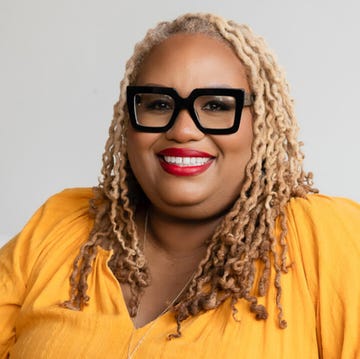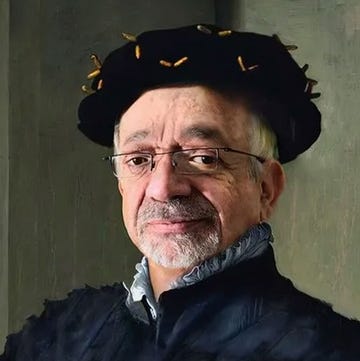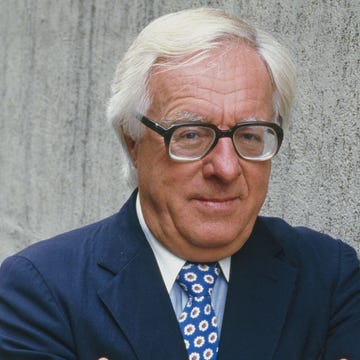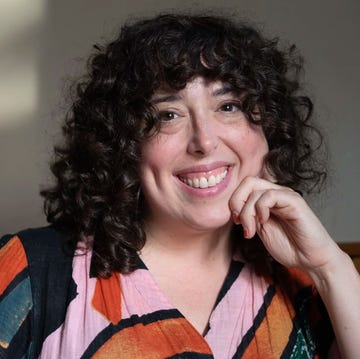Courtney Gustafson did everything right. She made good grades, went to college on a full scholarship, later began grad school. She worked hard, took overtime shifts, and moved to a cheaper city to make her money stretch farther. Yet for years, even after she’d found a stable job writing marketing and fundraising copy for a food bank, she largely lived paycheck to paycheck, unable to pursue her passions. She certainly never intended to find success through internet fame, but for whatever reason, her video of cooking a miniature Thanksgiving meal for the feral cats who lived outside her house went viral, first on Reddit and later on TikTok. The dedicated following she amassed changed the course of her life and helped her and her boyfriend, Tim, buy their house. Inadvertently, the feral cat colony she had inherited when she moved into what was then a rental helped Gustafson fulfill a key aspect of the American dream that had until then been out of her reach—as it still is for nearly half of her (and my) generation.
Gustafson’s Poets Square: A Memoir in Thirty Cats isn’t an “influencer” book. It isn’t ghostwritten; it’s not promoting a branded lifestyle; it’s not a self-help cash grab. (Obviously, not all books by influencers or celebrities are like this, but plenty are.) It’s a literary memoir written by a person who, like so many artists, couldn’t afford to dedicate more time and space to her creative writing until she was financially stable, a condition she attained only after becoming a popular TikTok content creator. So while Gustafson does address this process—one chapter is titled “Viral Cat Videos and the American Dream”—she is more interested in the work she does with feral cats, and how caring for animals relates to and illuminates how we care (or don’t) for human beings.
When she moved into the house she’d eventually own in Tucson’s Poets Square neighborhood, she had no idea that it came with an undisclosed feral cat colony. At first, she spotted one or two, then more appeared. As she and Tim grew comfortable in the house, they counted 30 cats who lived in and around their carport, yard, and neighborhood. Gustafson was a self-confessed cat person already, but she didn’t know how to connect with these feral animals. She writes in her brief foreword that feral and wild animals are different; wild animals evolved to survive without human interference, whereas feral animals are domesticated ones that have been abandoned. “Feral,” she writes, “for all the wildness it implies, just means that an animal was abandoned by the system that created it.” The lease she’d signed forbade her from feeding the cats, but she began to anyway, in dribs and drabs. The point became somewhat moot, as she couldn’t afford to regularly feed 30 cats. She worried about them, counted them daily to make sure they were all still there, all OK.
But they weren’t OK. They were hungry and malnourished, and plenty had other health issues, too, and as Gustafson began to bond with them, she felt increasingly worse about what she couldn’t do: “I know I can’t save them all, I told Tim. I just don’t want to see them suffer.” She explains, “That had felt like a noble thing to say. It would be a year before I would start to think about the difference between I don’t want them to suffer and I don’t want to SEE them suffer, how easily I had felt like a good person before the suffering was right outside my door. Before I was forced to face it.”
In the third chapter, “Hunger,” Gustafson explores human suffering, too. She was optimistic when she started working at the food bank, “so bright-eyed about the world, as if [she] alone had the kind of compassion that could solve systemic food insecurity.” Over the course of her time there, which overlapped with the first years of the COVID-19 pandemic, she witnessed the complexity and imperfection of such work: the rules the food beneficiaries had to follow, the lines they sat in, the time they lost in those lines, and the way some of them would lash out, and for good reason. “I can’t eat any of that, a woman would say as volunteers packed her car with cereal and white bread. She was diabetic. She was right. Someone would tell us that they had no teeth and could only eat soft foods, that they were allergic to peanut butter, that they couldn’t eat gluten. There was no protocol for this.”
Interspersed with these anecdotes are descriptions of Gustafson’s attempts to earn the trust of one of her ferals, Monkey, who for months would chase other cats away from her food and try to bite and scratch the hand that fed her. Later, though, as Monkey became visibly healthier, she also began to trust that she would get two meals every single day and—as long as those meals weren’t late, anyway—didn’t feel the need to hiss and swat and guard her food. Worrying less about her basic needs allowed Monkey to seek pleasure, be it by playing with a toy or rolling around in the dirt. Monkey is a success story. But, Gustafson writes, she didn’t see similar transformations at her job, and wasn’t sure they even happened; the lines never got shorter. And indeed, food insecurity is getting worse in the United States, not better.
Repeatedly in Poets Square, Gustafson returns to the theme of care. Caring for feral cats and earning the trust of the people who lived in proximity to them (leaving out leftover human food, putting out water, or letting the cats roam their properties) ultimately became her full-time gig. It’s a volunteer role she could afford to take on because of the money she received from the TikTok creator fund and the many donations of cat food and toys her followers provided, as well as the work of veterinary clinics that provided free healthcare. Gustafson cares immensely for the cats—as a fellow cat person who has volunteered with cat shelters, I relate—but she cares for people, too; over and over again, she returns to the links between us. Poets Square is about one woman’s journey to working in what is most easily explained as “cats? Her job is cats,” but it’s also about creating community and recognizing that we could do a much better job of caring for one another if only given the space, resources, and social permission to do so.•
Ilana Masad is a writer of fiction, nonfiction, and criticism. Masad is the author of the novel All My Mother’s Lovers and is co-editing a forthcoming anthology about The Bachelor franchise. Her new novel, Beings, comes out in September 2025.













